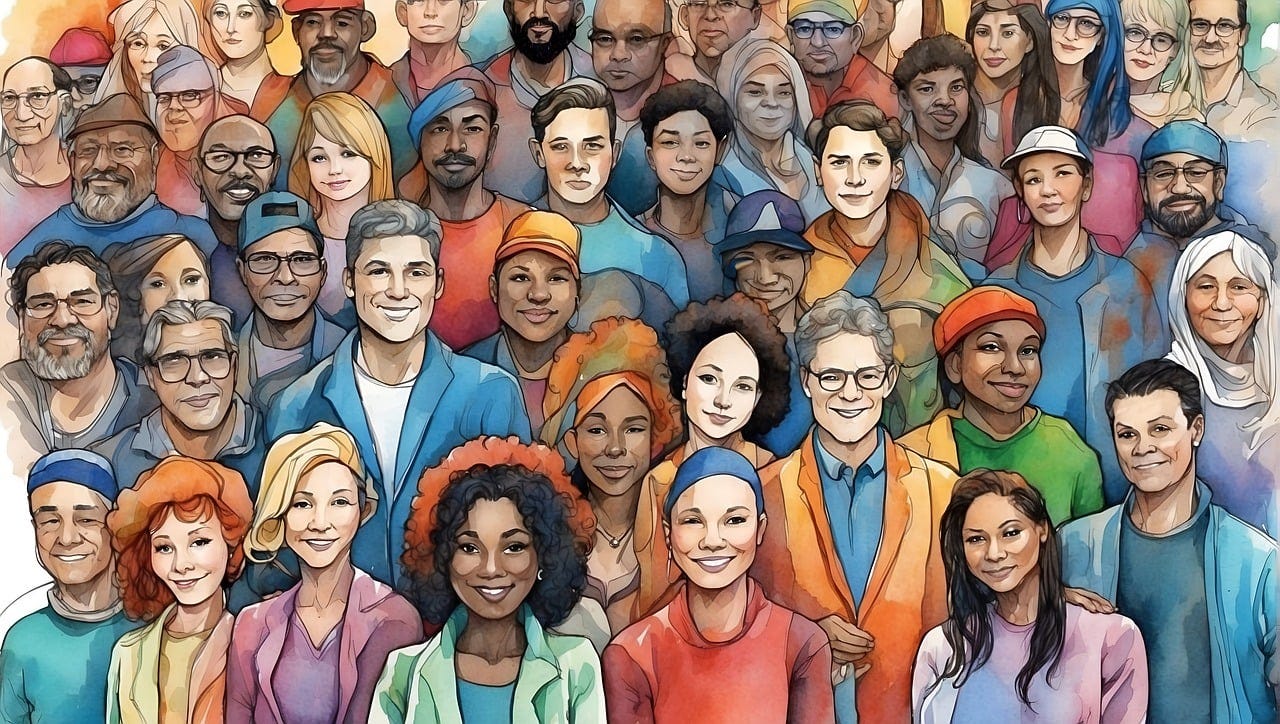I'm not weird, and neither are you.
Analyzing the hot adjective and how it contributes to the climate of political polarization.
Recently, the term “weird ” has been thrown around on both sides of the political battleground. It was first used by the left to describe republican vice presidential nominee J.D. Vance and his comments regarding “childless cat ladies”. Then as a retaliation, the right flung the word right back to describe democratic vice presidential nominee Tim Walz’s views and policies regarding transgenderism. While the term weird has been around for ages, it has quickly become the go-to insult for both sides to throw at each other. Though to many, it may seem like a cheap, meaningless shot at one’s opponents, it’s much more than that. If we aren’t careful, simple phrases such as this, given the proper wings, will reap terrible consequences.
It’s common to think that a simple description such as weird has no gravity to it, but on the contrary, it’s a negative adjective that will do nothing but aid in digging the grave of political divisiveness that we will soon find ourselves in. How so? Well, first let’s take a look at the meaning of our newfound favorite insult.
Weird* (Adjective) - Strikingly odd or unusual, especially in an unsettling way.
When we truly think about the meaning of words, we are forced to also think about their ramifications when used improperly. Weird is a word I would use to describe things such as the sound of a hyena laughing, a deformed potato chip, or pigeons (maybe that’s just me, but they creep me out) but it isn’t a word I would take to calling another person who had different politics than me. It isn’t a word I would use to negatively describe any human. When I was a young boy, I was a bit of a nerd, I got called weird more times than I can count. I know I’m not the only one, anyone who has been labeled as such knows that it doesn’t feel good, it hurts. You’re made to feel as if you are strange, an outlier, you don’t belong. We wouldn’t want to be called weird, we wouldn’t want someone to call our child or younger siblings weird, and we wouldn’t want anyone calling any of our close friends or family weird. So why is it okay to call total strangers who simply disagree with us on political matters weird?
In most cases with young children, calling someone weird can be seen as bullying. So this means, that when you and I do it ( I say “I” because I am guilty of it too), we are also bullies. I know it may sound a bit silly at first but let’s look at it this way. Your dear grandfather grew up in the bible belt south and holds very conservative views which are most compatible with his faith and values. He’s a good, hardworking man who loves unconditionally and is the kindest man anyone could meet, you just light up thinking about him. Would you want someone to call your dear grandfather weird simply because of his political views? Would you want someone to categorize him as unsettling and strange because he is against abortion and supports President Trump, or because he is in favor of the nuclear family ideal? Would it be fair to simply label him as weird? Think about a dear friend of yours who you have shared many good times with and love deeply. They consider themselves to be liberal and have more progressive political views. Is this person weird simply because they feel that the best way to address underprivileged minorities is with strong DEI policies in place or because they hold a different view than you on how foreign affairs should be dealt with?
You can’t decide where weird applies and where it doesn’t to the opposite side, you can’t say that “Liberals are stupid weirdos who hate America…except my uncle Roy who is a liberal, he’s the best” It simply doesn’t work. When you sling mud to the other side, all it does is fuel the most negative biases one can hold to those in opposition to them. When we use words such as weird to categorize folks who disagree with us, it opens the door to contempt, which opens the door to hatred which inevitably opens the door to violence. If you label someone as weird, you most likely don’t want to be around them and don’t really care what they have to say. You’ve already cast them off in your head with the simple notion of weird. After some time, you begin to despise that weirdness and then anyone who shows even an ounce of the same weirdness is now a target for your contempt.
No one is saying that you can’t disagree. Disagreeing is natural, healthy, and necessary for a proper balance in society. Though the current culture doesn’t reflect it, there are ways to disagree and not hate one another. What has happened that we have become so quick to judge? so eager to hate? It’s understandable for one to boil over with passion when defending one’s convictions but in the words of Friedrich Nietzche ( Of who I seldom quote), “Beware that, when fighting monsters, you don’t become a monster”. I know it’s tempting to join in on the fun and just sling the mud back over to the other side, all in the name of defense, but all that does is fuel the fire of polarization that plagues the hearts of many Americans. Yes, even with something small like weird, because where there’s smoke, there’s fire, and where there’s fire, there’s destruction.
You shall not take vengeance or bear a grudge against the sons of your own people, but you shall love your neighbor as yourself: I am the LORD. – Leviticus 19:18
God gives us the answer in the word. Love your neighbor as yourself. It is simple yet seemingly extremely difficult for many in today’s culture. Many people are aware of the divisive culture yet they are unaware of how they contribute to it, or rather how they can mitigate their contribution. Author Marrian Willamson offers a great antidote as she says “All of us are better off when contemplation of holy principles is at the center of our lives. but it is in actually applying those principles that we forge the marriage between heaven and earth, whereas merely dwelling on principles falls short of the human effort needed to carry out God’s will” Don’t just say you are going to love your neighbor, actually do it. How? Understand them, ask them questions, and open a discourse that may be uncomfortable for you, in that it forces you to face ideas that don’t match your own. You don’t have to walk away with your mind changed nor do you have to seek to change their mind, but by opening such discourse you can understand each other and where you come from. In the end, I’m sure you will see that you both are coming from an earnest, heartfelt place. Just because your moral compasses don’t match up or your views don’t perfectly align, doesn’t mean that person is less than you, or weird. They are simply another human who sees things differently, deserving of God’s love and yours.









